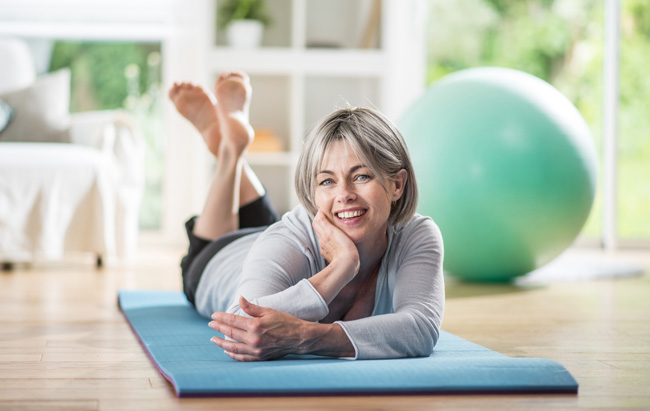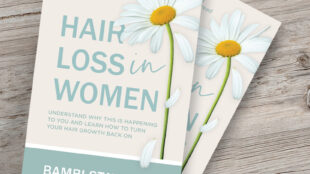Top Tips for Staying Fit and Healthy after 50

Finding Being a fit Healthy 50 something a challenge? The lifestyle choices that worked for you in your 20’s and 30’s don’t necessarily cut it in your 40’s, 50’s or 60’s. The average age of onset for menopause in women is around 50. It results in a range of hormonal, cardiovascular and muscle changes. It can also bring with it the start of the dreaded middle age spread! Many women say they struggle to stay fit and healthy after 50.
As muscle mass begins to decrease, excess fat starts to accumulate and many women over 50 suffer from a lower resting metabolic rate. Hormonal shifts can cause a range of health issues and contribute to an increased risk of heart disease and stroke. A loss in the volume of stomach acid can also contribute to lower absorption of certain minerals and nutrients.
All these factors make it clear that both your diet and lifestyle habits should look different after 50 than they did in the earlier stages of your life. The ultimate goal for women over 50 is to maintain a healthy weight, consume foods that are good for the heart, stay physically strong and keep moving! The following 5 tips will assist you in reaching all your fitness goals in this phase of your life:
Take B12 Supplements Every Day
B12 Vitamins support healthy nerve and blood cells. They are primarily found in fish and meat. B12 vitamins are bound to a protein in food and are only released when these proteins are digested in the stomach. Due to the decrease in stomach acid as we age, it becomes increasingly difficult to adequately absorb B12. The symptoms of B12 deficiency include weakness, tiredness, light-headedness, heart palpitations, shortness of breath, pale skin, constipation, diarrhoea, a loss of appetite, gas, problems walking, vision loss and nerve problems like numbness or tingling and muscle weakness. They may take years to appear and can easily be prevented by adequately supplementing your B12 stores early on.
Cut the salt. Seriously.
All older adults are at an increased risk of hypertension/high blood pressure because our veins become less elastic as we age. High blood pressure puts you at an increased risk of stroke, heart attack, heart failure, kidney disease and early death. A huge proportion of our sodium intake is due to an increased consumption of processed foods like chips, frozen meals, canned soups, etc. Try to avoid these foods altogether. A good rule of thumb is that if your grandmother wouldn’t recognize it, don’t eat it! Aim for 1500mg of salt a day which is roughly ½ a teaspoon.
Add flavoursome herbs to your food instead of salt. After a short adjustment period, you’ll be amazed how wonderfully they complement your meals. Several herbs also have added health benefits. Oregano, thyme and rosemary are high in antioxidants and are known to help fight cancer. Ditching processed food will open you up to consuming more whole foods too. Eating more grains, fruits and vegetables will help to increase your intake of fibre. Fibre helps you to stay full longer and will also help you maintain your weight.
If your multivitamin has Iron in it… ditch it!
The average woman experiences menopause and the end of her menstrual cycle at around 50. After this, the daily need for iron decreases to about 8mg. Our bodies can’t live without iron but too much in our systems can be just as hazardous. When the body doesn’t have a natural way to excrete iron effectively, there’s an increased risk of iron toxicity. This can cause liver and heart damage and even death. You should only take an iron supplement if it has been prescribed by a health professional. This would be appropriate if there is an actual iron deficiency present but otherwise, it’s best to avoid it.
Up your E and D Vitamins
The body’s ability to absorb Vitamins E and D decreases with age because of the gastric and hormonal changes previously described in this post. These vitamins are essential in helping women prevent osteoporosis due to their link with bone health and calcium absorption. After 50, the body begins to break down bone mass faster than it is able to rebuild it which puts women over 50 at a higher risk of osteoporosis and bone fractures too.
Ideally, a woman should have a high intake of calcium rich food sources before the age of 30 but adding these to your diet is beneficial at any age. Excellent sources include sardines (which also give you a hit of valuable omega 3), spinach, kale, broccoli and low fat milk and yoghurt products. Vitamin D aids the absorption of Calcium. Most women need additional Vitamin D supplementation. Get your levels checked by your GP to see if you’re one of them.
Eat like you’re on a Mediterranean Holiday!
The elasticity of our blood vessels decreases as we age but the force of the blood moving through them increases. This ultimately puts older women at risk of heart disease but a delicious diet trick can help reduce your risk… eat like a Greek!
A study in the British Journal of Medicine found that people who eat diets high in fresh fruit, vegetables, whole grains, olive oil and include moderate wine consumption tend to live longer… and that’s music to our ears! Subsequent studies in the European Journal of Cancer Prevention and the American Journal of Clinical Research found similar results. The Mediterranean diet results in a lower risk of cancer and heart disease. There’s no denying that looking after your diet helps you look after your health long term too.
These 5 tips will assist you in maintaining a healthy weight, regulating your hormones and staying fit and fabulous after 50. Just cut the salt, eat a Mediterranean diet and be aware of your vitamin needs! You can also take on simple exercises like this 60 second tummy exercise and look after your hair with these 6 healthy hair tips for older women. You deserve to look and feel great at any age!





